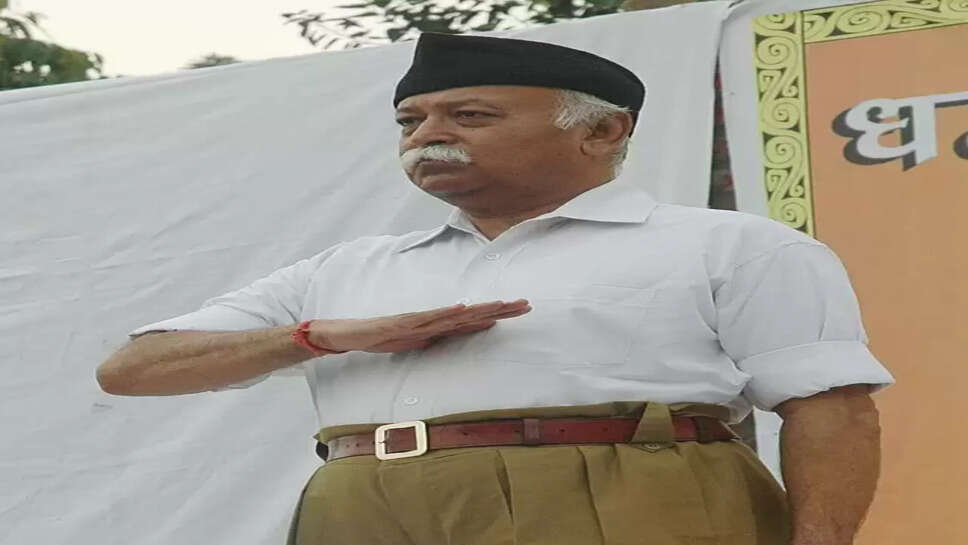Malegaon Court Rejects ‘Arrest Bhagwat’ Claim as Inadmissible Testimony

The Special National Investigation Agency (NIA) court in Mumbai has ruled that the controversial claim made by a witness regarding an alleged directive to arrest Rashtriya Swayamsevak Sangh (RSS) chief Mohan Bhagwat in connection with the 2008 Malegaon blast cannot be considered valid evidence. The ruling has sparked debate across political circles and legal communities, especially as the case remains one of the most sensitive terrorism-related trials in modern India.
The statement in question came from a former RSS worker-turned-accused-turned-witness who claimed that during the initial stages of the investigation, a senior officer had allegedly instructed him to implicate Mohan Bhagwat and even said there was an order to arrest him. However, the special NIA court dismissed the claim, observing that such hearsay statements without corroboration are inadmissible and cannot form the basis of criminal proceedings.
Backdrop: The 2008 Malegaon Blast
The Malegaon blast, which occurred on September 29, 2008, claimed six lives and injured more than 100 people. The explosion, which took place in a Muslim-majority area of Malegaon town in Maharashtra, was initially suspected to be the work of Islamic extremist groups. However, the probe later shifted direction and culminated in the arrest of several right-wing Hindu activists, including Lt. Col. Prasad Purohit and Sadhvi Pragya Singh Thakur (now a BJP MP).
Over time, the case attracted massive political and communal scrutiny, especially after investigative leads allegedly suggested the involvement of members linked to Hindutva organizations. The inclusion of Mohan Bhagwat’s name, even tangentially, reignited debates over “saffron terror” — a term used controversially in political discourse.
The Controversial Testimony
The claim that stirred the latest controversy came during the testimony of a prosecution witness — a former co-accused who later turned approver. In his court statement, the witness alleged that he was pressured by senior officers during the UPA government’s tenure to name RSS leaders, particularly Mohan Bhagwat and Indresh Kumar, in the Malegaon conspiracy.
He also alleged that he was told an “order had come from Delhi” to arrest Bhagwat and that the officer allegedly said, “If you want to be saved, do what is told to you.”
However, the court dismissed these remarks as speculative and lacking substantive evidence. The judge noted that unless the source of the instruction is authenticated and corroborated, such claims hold no probative value in a court of law.
Court’s Observation and Rationale
The special NIA judge emphasized the importance of legal procedures in handling serious charges. According to the judgment, while a witness may make statements based on personal experiences or conversations, for such statements to carry weight in court, they must be backed by verifiable records or supported by independent testimony.
In this instance, the claim was not substantiated by any documentary evidence or third-party corroboration. No official record or communication regarding the purported order to arrest Bhagwat was presented. Consequently, the court stated:
“The witness’s reference to an alleged instruction to arrest a public figure cannot be accepted as credible evidence in the absence of corroborative material. Courts cannot act upon oral assertions that amount to hearsay.”
This judicial approach aligns with standard evidentiary norms that require higher thresholds of reliability when allegations involve high-ranking individuals or public figures.
Political Fallout
The ruling immediately triggered reactions from across the political spectrum. The Congress, which has previously accused the ruling BJP of manipulating investigations to shield ideological allies, stood by the witness’s claim, asserting that “the truth is being buried to protect the powerful.” Senior Congress leaders said the testimony reflected earlier claims made by then Home Minister Sushilkumar Shinde regarding "Hindu terror" cells.
On the other hand, BJP leaders hailed the court’s stance, calling it a "vindication of RSS’s clean record." Party spokespersons reiterated that the allegations against Bhagwat and other RSS functionaries were part of a "fabricated political narrative" created to malign the organization during the UPA era.
RSS functionaries too responded strongly, condemning the alleged attempt to falsely implicate its top leadership. A senior RSS pracharak said, “The judiciary has spoken, and it’s time the Congress stopped dragging Bhagwat ji’s name into conspiracies.”
Implications for the Case
The Malegaon blast case is still underway, with several accused out on bail. The court's rejection of the witness’s claim is likely to shift the focus back onto forensic and material evidence rather than political implications.
While the witness remains a part of the case, legal experts suggest that the court’s latest observation significantly weakens any speculative linkage of RSS leadership to the blast.
Senior advocates pointed out that such testimonies—if not backed by hard evidence—could compromise the fairness of proceedings and unnecessarily politicize the judicial process.
The Road Ahead
The case will now proceed with further witness depositions and cross-examinations. The prosecution is expected to bring in scientific experts, eyewitnesses, and forensic evidence to support its case against the remaining accused. The NIA, which took over the probe in 2011, has maintained that it is following a “fact-based” approach and is not influenced by political considerations.
Meanwhile, the defense is likely to use the court’s rejection of the testimony to further its claim that the entire case is politically motivated. The legal battle is far from over, and the verdict in the Malegaon blast trial may still take several months, if not years.
The NIA court’s refusal to admit the claim about Mohan Bhagwat’s alleged arrest order as evidence brings a moment of clarity amid a highly politicized case. It underscores the importance of strict evidentiary standards in terrorism trials and reaffirms the principle that unsubstantiated allegations—no matter how sensational—have no place in a court of law.
As the Malegaon blast trial continues, all eyes remain on how the judiciary balances between evidence, due process, and the intense political noise surrounding one of India’s most debated terror cases.
